Getting a Home Loan in Michigan with a Chapter 13 Bankruptcy in 2025: A Comprehensive Guide
Navigating the home buying process can be daunting, especially if you’ve filed for Chapter 13 bankruptcy. However, purchasing a home in Michigan while managing an active Chapter 13 bankruptcy in 2025 is not impossible. With the right approach, understanding the regulations, and working with the right lenders, you can achieve homeownership, even after bankruptcy. This guide provides an in-depth look at how to secure a home loan in Michigan while in Chapter 13 bankruptcy, covering eligibility, steps to take, and resources to help you along the way.
Chapter 13 Bankruptcy Explained
Before diving into the details of securing a home loan with Chapter 13 bankruptcy, it’s important to understand what Chapter 13 bankruptcy is. Chapter 13, often called a “wage earner’s plan,” allows individuals with regular income to develop a plan to repay all or part of their debts over three to five years. Unlike Chapter 7 bankruptcy, which can discharge unsecured debts, Chapter 13 involves a repayment plan that helps debtors manage and pay off their outstanding balances.
While Chapter 13 bankruptcy can offer relief from creditor harassment, it does have long-term financial consequences. One of the most significant consequences is its impact on your credit score, which can make it harder to qualify for a home loan. However, with the right preparation and the willingness to work through the process, you can still qualify for a mortgage.
Can You Get a Home Loan in Michigan During Chapter 13 Bankruptcy?
Yes, it is possible to get a home loan in Michigan during Chapter 13 bankruptcy, but it requires careful planning and meeting specific requirements. The process is slightly different from traditional home loan applications, as lenders need to ensure you can continue to meet the requirements of your repayment plan while managing a new mortgage.
Key Considerations Before Applying for a Mortgage
1. Completion of the Repayment Plan:
Lenders will typically require that your Chapter 13 bankruptcy repayment plan is at least one year old before considering you for a mortgage. This gives the lender confidence that you can manage both your debt repayment obligations and your new home loan payments.
2. Timely Payments on Your Chapter 13 Plan:
It’s crucial that you are current on your Chapter 13 payments, as missed payments could hurt your chances of securing a mortgage. Lenders want to see that you have a reliable and consistent payment history. You may also be required to provide documentation of your timely payments from your bankruptcy trustee.
3. Approval from the Bankruptcy Court:
In many cases, lenders will require approval from the bankruptcy court before you can take out a new mortgage. This is an essential step to ensure that the new mortgage does not interfere with your repayment plan.
4. Down Payment:
You may be required to provide a larger down payment than someone without a bankruptcy history. A typical down payment for a conventional loan is 20%, but you may need more depending on your specific situation and the lender’s requirements.
5. Debt-to-Income Ratio:
Your debt-to-income (DTI) ratio is a crucial factor in the loan approval process. While your Chapter 13 bankruptcy repayment plan may increase your DTI ratio, lenders will still assess your ability to afford the mortgage payments in relation to your income.
6. Type of Loan:
The type of loan you are applying for will also affect your eligibility. For example, government-backed loans such as FHA, VA, or USDA loans may offer more leniency for borrowers with Chapter 13 bankruptcy histories. On the other hand, conventional loans may have stricter requirements.
Types of Loans Available for Michigan Homebuyers in Chapter 13 Bankruptcy
There are several types of loans you may be eligible for while in Chapter 13 bankruptcy. The key types include FHA loans, VA loans, and conventional loans. Each type of loan has its own set of requirements, so it’s essential to understand the differences.
1. FHA Loans
FHA loans are a popular choice for homebuyers with less-than-perfect credit, including those who have filed for Chapter 13 bankruptcy. To qualify for an FHA loan in Michigan with a Chapter 13 bankruptcy:
• Waiting Period: You may qualify for an FHA loan after completing one year of your Chapter 13 repayment plan, provided that you have demonstrated a consistent payment history.
• Court Approval: FHA requires that you obtain court approval for a new mortgage while in bankruptcy.
• Credit Requirements: While FHA loans are more lenient on credit history, your credit score must be at least 580 to qualify for the minimum down payment.
For more information on FHA loans, visit HUD.gov.
2. VA Loans
VA loans are available for eligible veterans and active-duty military personnel. If you are in Chapter 13 bankruptcy, you may still qualify for a VA loan, but you must meet specific requirements:
• Waiting Period: VA loans have no mandatory waiting period after a Chapter 13 bankruptcy. However, you will need to prove that you have been current on your repayment plan for at least one year.
• Court Approval: You must get approval from the bankruptcy court for a new VA loan.
• Discharge Requirement: If your Chapter 13 case has been discharged, you may be eligible for a VA loan without the need for court approval.
For more information about VA loans, visit VA.gov.
3. Conventional Loans
Conventional loans tend to have stricter requirements, making it more challenging to secure a mortgage during Chapter 13 bankruptcy. However, if you have a stable income and a solid payment history on your bankruptcy plan, it is possible to qualify. Lenders will typically require:
• Two Years from Discharge: Many lenders require that your Chapter 13 bankruptcy be discharged for at least two years before applying for a conventional mortgage.
• Strong Credit History: A higher credit score may be needed to qualify for conventional loans.
• Court Approval: As with other loan types, court approval is generally required.
Steps to Get a Home Loan in Michigan with Chapter 13 Bankruptcy
Here are the key steps you’ll need to follow to secure a mortgage during Chapter 13 bankruptcy:
Step 1: Check Your Bankruptcy Status
Before you even begin the process of applying for a home loan, check your Chapter 13 status. Make sure you’re up to date on your payments and that you have the necessary documentation showing you’ve been making consistent payments to the bankruptcy trustee.
Step 2: Speak with a Bankruptcy Trustee
Your bankruptcy trustee is an essential part of this process. You’ll need to speak with them to ensure that they are aware of your intentions to take out a mortgage and get their approval. In some cases, the trustee may be required to file a motion with the court for approval.
Step 3: Shop Around for Lenders
Once you know you are eligible for a loan, start shopping around for lenders who specialize in working with buyers who have a Chapter 13 bankruptcy. Some lenders may be more experienced in handling these situations and can provide more favorable terms.
Step 4: Provide Documentation
You will need to provide various documents to lenders, including your bankruptcy repayment plan, payment history, income verification, and tax returns. Be prepared to explain your bankruptcy situation and show that you’ve made consistent, on-time payments.
Step 5: Seek Court Approval
If necessary, obtain court approval for the new mortgage. This step ensures that your mortgage will not interfere with your Chapter 13 repayment plan.
Step 6: Close on the Loan
Once all the necessary steps have been completed and you’ve secured your loan, you can move forward with closing on the property. Be sure to budget for any additional costs that may arise as part of the home buying process.
Resources for Homebuyers in Chapter 13 Bankruptcy
• HUD.gov: The U.S. Department of Housing and Urban Development (HUD) provides information on FHA loans and how bankruptcy affects mortgage eligibility. Visit HUD.gov for more details.
• VA.gov: For veterans and active military, the VA website is an excellent resource for learning about VA loans and how Chapter 13 bankruptcy affects eligibility. Visit VA.gov.
• Forever Home Financing: A company that specializes in helping individuals with unique financial circumstances, including Chapter 13 bankruptcy, secure home loans. For more information, visit Forever Home Financing.
Conclusion
Getting a home loan in Michigan while in Chapter 13 bankruptcy in 2025 is definitely possible, though it requires careful planning, court approval, and a history of on-time payments. By understanding the specific requirements for different types of loans—such as FHA, VA, or conventional loans—and working with a knowledgeable lender, you can set yourself up for success in achieving your dream of homeownership.
If you are committed to maintaining a steady payment history and following the right steps, the opportunity to secure a home loan is within reach. Take advantage of the resources available to you, such as HUD.gov, VA.gov, and specialized lenders like Forever Home Financing, and make informed decisions as you move forward with your home buying journey.

